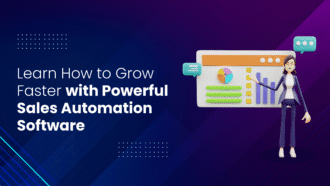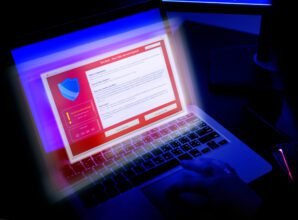Four ways you can keep your digital data secure
Data has become integral to everyone’s life in this highly tech-intensive and tech-reliant era. It is the most valuable thing on your networks and devices and is, sometimes, central to your day-to-day tasks. You often produce, generate, and store thousands of megabytes of data daily without realising it.
The rising amount of data also raises a significant threat of security and privacy breaches. Therefore, data security becomes pivotal. Efficient and thorough data security increases the trust and credibility of your brand, simplifies business process automation, and enhances data management. Similarly, data security protects your personal and company’s data against cyber-attacks by improving cyber resilience and tackling computer hackers.
Remember, your social security number, credit card information, bank account information, and other things can be at risk significantly without sufficient data security. Comparably, your company’s data might consist of trade secrets, client’s confidential information, and other crucial documents you cannot afford to lose.
Data security is vital but uncomplicated. Below, we’ve mentioned a few simple steps and precautions to help you avoid cyber-attacks and theft risks.
Four ways you can keep your digital data secure
Digital estate planning
Remember that your data is not only at risk during your lifetime but also at risk after you pass away. Suppose you wish for a specific individual to protect your data after your demise. In that case, you need a digital estate plan.
Digital estate planning is a relatively new term. It is a process similar to real-life wills and traditional estate planning but concentrates on everything that makes up your digital life. Several digital sites can help construct your digital estate. For instance, using the 1Password digital estate plan enables you to keep everything in one place with a single, protected password.
It is a relatively simple seven-step process that helps you create and manage a handover process after you pass away. The steps include taking stock of your data, considering who to name as your inheritor, deciding how to transfer or hand over data, and considering two-factor authentication. You must also consider information not generally kept within a password manager and explain everything precisely to your loved ones to avoid complications.
Use a strong password.
A critical caution for data security is setting up solid and unidentifiable passwords. Never use your name as your password. Avoid using names from your family or anything that relates to you and is easily guessable. Avoid words found in dictionaries, use a password at least 12 characters long, and use multiple symbols, capital letters, numbers, and lower-case letters. And don’t use keyboard patterns.
Never reveal your passwords to anyone unless entirely necessary. If you want to write them down, make sure you note them down in a secure place. Moreover, don’t keep the same password across multiple sites. Create unique passwords for each entry and use a password manager to store all your passwords. Do not store your passwords on your desktops or mobiles – never! Use features such as touch ID and face ID to strengthen security on your mobile.
Firewalls and antivirus
Firewalls prevent unauthorized access to a network. They keep personal and confidential data secure by using several rules to block theft and inspecting incoming and outgoing traffic. They also monitor network traffic, stop virus attacks, prevent hacking, contain spyware, and promote privacy.
A firewall consists of the following components:
- Hardware: consisting of separate devices
- Software: firewall software provides security control through IP packet filtering, logging, real-time monitoring, SOCKS servers, proxy servers, and mail relay servers.
Antivirus is another vital security system program that considerably aids data security and prevents theft. Its primary functions are to prevent, detect, and remove malware infections. An antivirus system provides firewall protection from spyware and phishing attacks, blocks spam and ads, ensures protection from removable devices, and acts as a defence against data thieves.
Regular software updates
Updating your software regularly and religiously is critical to data security. Outdated software risks malfunctions that can pose significant threats to your privacy. It would help to remember that hackers constantly write new codes and viruses to find system vulnerabilities. Not updating your software, when necessary, gives them a clear path to enter and attack your data.
Hence, update your systems regularly, especially your web browsers. The best way would be to enable automatic updates so your browsers and other software update themselves whenever needed. However, sometimes, automatic updates aren’t available for specific programs. If these programs require you to connect with servers online, you must manually check for updates at least once a week.
Final thoughts
We share an incredible amount of information online, so defining boundaries and understanding our limits is essential. To ensure data security, the most helpful step you can take is to refrain from putting out excessive and unneeded information. You can share news, but ensure you are doing so in moderation.
Data security can become intimidating, but it is highly crucial. Data theft and cyber-attacks have become increasingly common. The only way to protect your personal and company’s confidentiality is to ensure thorough and robust data security.

















